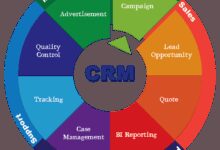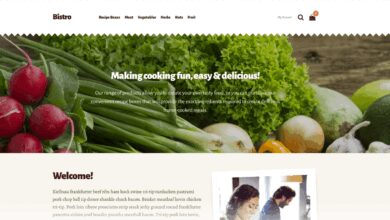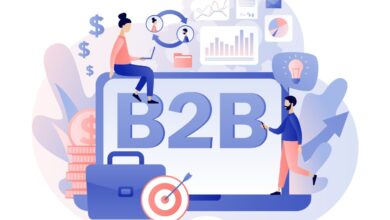B2B Examples: 7 Powerful Real-World Success Stories Revealed
Ever wondered how companies sell to other companies? Dive into real b2b examples that reveal how industries thrive through smart partnerships, strategic sales, and scalable solutions.
B2B Examples: Understanding the Core of Business-to-Business Transactions

Business-to-business (B2B) refers to transactions between companies rather than between a company and individual consumers (B2C). These interactions form the backbone of global commerce, fueling supply chains, innovation, and economic growth. When we explore b2b examples, we uncover how organizations rely on each other for everything from raw materials to digital infrastructure.
What Defines a B2B Relationship?
A B2B relationship is established when one business provides products or services to another as part of their operational needs. Unlike B2C, where emotions and branding often drive decisions, B2B transactions are typically based on logic, ROI, efficiency, and long-term value.
- Transactions are usually larger in volume and value.
- Decision-making involves multiple stakeholders.
- Sales cycles are longer and more complex.
For instance, a software company selling CRM tools to enterprises is a classic example of B2B. The focus isn’t on mass appeal but on solving specific business challenges.
Key Differences Between B2B and B2C
While both models involve selling, the strategies differ significantly. In b2b examples, marketing emphasizes expertise, reliability, and integration capabilities. In contrast, B2C marketing leans heavily on emotional triggers and instant gratification.
- B2B buyers seek efficiency, scalability, and support.
- B2C buyers respond to trends, visuals, and convenience.
- B2B relationships are often contractual and long-term.
“B2B marketing is about building trust, not just transactions.” — Neil Patel, digital marketing expert
Top 7 Real-World B2B Examples That Define Industry Standards
Let’s dive into some of the most impactful b2b examples across industries. These cases highlight how companies create value by serving other businesses with innovative solutions, robust platforms, and essential services.
1. Salesforce: Revolutionizing Enterprise CRM
Salesforce is one of the most iconic b2b examples in the SaaS (Software as a Service) space. It provides cloud-based customer relationship management (CRM) tools that help businesses manage sales, marketing, and customer service operations.
By offering scalable, customizable platforms, Salesforce enables companies like Toyota, Unilever, and Amazon to streamline customer interactions and boost productivity. Its ecosystem includes AI-driven analytics, automation, and third-party integrations, making it indispensable for enterprise clients.
- Over 150,000+ customers globally.
- Revenue exceeded $31 billion in 2023.
- Partnerships with Accenture, Deloitte, and AWS enhance implementation.
Learn more about Salesforce’s impact at salesforce.com.
2. Amazon Web Services (AWS): Powering Global Digital Infrastructure
AWS is a cornerstone among b2b examples in the tech world. As a cloud computing platform, it provides businesses with scalable storage, computing power, databases, and machine learning tools.
Companies like Netflix, Airbnb, and NASA rely on AWS to host their applications and manage data securely. AWS doesn’t sell directly to consumers; instead, it enables other businesses to innovate faster and scale efficiently.
- Market leader with over 30% share of global cloud infrastructure.
- Offers more than 200 fully featured services.
- Supports hybrid and multi-cloud environments.
Explore AWS’s enterprise offerings at aws.amazon.com.
3. Siemens: Industrial Automation and Smart Infrastructure
Siemens stands out among b2b examples in the manufacturing and energy sectors. It provides industrial automation systems, digital twins, and smart building technologies to factories, utilities, and cities.
For example, Siemens’ MindSphere platform allows manufacturers to monitor equipment performance in real time, reducing downtime and optimizing production. Its solutions are used by BMW, Bosch, and municipal governments worldwide.
- Operates in over 190 countries.
- Invests heavily in R&D for Industry 4.0.
- Focuses on sustainability and digital transformation.
Discover Siemens’ B2B innovations at siemens.com.
B2B Examples in the Technology Sector: How SaaS Companies Dominate
The rise of Software-as-a-Service (SaaS) has redefined b2b examples in the digital age. These companies deliver software over the internet, eliminating the need for on-premise installations and enabling rapid deployment.
Zoom: Connecting Businesses Virtually
While Zoom became a household name during the pandemic, its core business model is deeply rooted in B2B. Enterprises use Zoom for virtual meetings, webinars, team collaboration, and customer engagement.
With features like Zoom Rooms, API integrations, and enterprise-grade security, it caters specifically to organizational needs. Clients include universities, financial institutions, and government agencies.
- Serves over 10,000 enterprise customers.
- Integrates with Slack, Salesforce, and Google Workspace.
- Offers compliance with GDPR, HIPAA, and SOC 2.
Visit zoom.us to see how Zoom supports business communication.
Slack: Redefining Workplace Collaboration
Slack is another standout among b2b examples in the productivity software space. It acts as a digital hub for teams, integrating messaging, file sharing, and app workflows into one platform.
Companies like Target, Spotify, and NASA use Slack to improve internal communication and reduce email overload. Its strength lies in seamless integration with tools like Google Drive, Trello, and Zoom.
- Over 20 million daily active users.
- Acquired by Salesforce to enhance CRM workflows.
- Offers advanced admin controls for IT departments.
Learn more at slack.com.
B2B Examples in Manufacturing: Supply Chains That Move the World
Manufacturing is one of the oldest and most critical domains for b2b examples. From automotive parts to electronics, companies depend on a vast network of suppliers and distributors to keep production lines running.
General Electric (GE): Industrial Powerhouse
GE supplies turbines, aviation engines, and healthcare equipment to other businesses. Its clients include airlines, power plants, and hospitals. For example, GE Aviation provides jet engines to Boeing and Emirates Airlines.
The company operates on long-term contracts and service agreements, emphasizing maintenance, efficiency, and innovation. Its Predix platform also offers industrial IoT solutions for predictive maintenance.
- Revenue of $72 billion in 2023.
- Focus on renewable energy and digital twins.
- Global supply chain with thousands of B2B partners.
Explore GE’s industrial solutions at ge.com.
Bosch: Engineering Solutions for Mobility and Industry
Bosch is a German multinational that supplies automotive components, power tools, and industrial technology. It sells ABS systems, sensors, and electric vehicle components to car manufacturers like Tesla and Volkswagen.
Beyond automotive, Bosch offers smart factory solutions and building technologies. Its B2B focus ensures high precision, reliability, and compliance with international standards.
- Over 400,000 employees worldwide.
- Invests over €7 billion annually in R&D.
- Leader in IoT and connected devices for industry.
Visit bosch.com for more on their B2B offerings.
B2B Examples in Logistics and Distribution: Keeping Commerce Flowing
Logistics companies are essential b2b examples, ensuring goods move efficiently from producers to retailers or other businesses. Their services include warehousing, freight transport, and supply chain management.
FedEx: Global B2B Delivery Network
FedEx isn’t just for sending packages to individuals—it’s a vital player in B2B logistics. It provides express shipping, freight forwarding, and supply chain solutions for businesses of all sizes.
Companies like Apple, Dell, and pharmaceutical firms rely on FedEx for time-sensitive deliveries, cold-chain logistics, and international trade compliance. Its technology platform allows real-time tracking and customs documentation.
- Operates in over 220 countries and territories.
- Handles millions of shipments daily.
- Offers FedEx Supply Chain for end-to-end logistics.
Learn about FedEx’s B2B services at fedex.com.
Maersk: Maritime Logistics Giant
Maersk is one of the world’s largest container shipping companies and a prime example of b2b examples in global trade. It transports raw materials, finished goods, and industrial equipment across oceans.
Through its digital platform, Maersk TradeLens, it provides transparency in shipping data, helping importers and exporters manage inventory and reduce delays. Partners include Walmart, IKEA, and Unilever.
- Controls over 18% of global container capacity.
- Investing in carbon-neutral shipping solutions.
- Offers integrated logistics from port to warehouse.
Explore Maersk’s services at maersk.com.
B2B Examples in Professional Services: Expertise as a Product
Professional services firms deliver knowledge-based solutions such as consulting, legal advice, accounting, and marketing. These are quintessential b2b examples where the product is expertise.
McKinsey & Company: Strategic Business Consulting
McKinsey advises Fortune 500 companies, governments, and nonprofits on strategy, operations, and digital transformation. Its clients include Microsoft, JPMorgan Chase, and the World Bank.
The firm conducts in-depth research, data analysis, and scenario planning to help organizations make informed decisions. Its value lies in confidentiality, global reach, and industry-specific insights.
- Over 130 offices in 65+ countries.
- Employs thousands of consultants with advanced degrees.
- Publishes influential reports via McKinsey Global Institute.
Visit mckinsey.com to explore their thought leadership.
PwC: Audit, Tax, and Advisory Services
PwC (PricewaterhouseCoopers) is one of the Big Four accounting firms, providing audit, tax, and advisory services to businesses worldwide. It helps companies comply with regulations, optimize taxes, and improve performance.
Its clients range from startups to multinational corporations. PwC also offers cybersecurity consulting, ESG reporting, and digital transformation strategies—key areas in modern B2B demand.
- Revenue of $53 billion in 2023.
- Over 328,000 employees globally.
- Strong focus on sustainability and digital innovation.
Learn more at pwc.com.
B2B Examples in E-Commerce Platforms: Digital Marketplaces for Businesses
E-commerce isn’t just for consumers. B2B e-commerce platforms enable businesses to buy and sell products online, streamlining procurement and distribution.
Alibaba: The Global B2B Marketplace
Alibaba is perhaps the most famous b2b examples in e-commerce. It connects manufacturers in China with buyers worldwide, from small retailers to large corporations.
Through platforms like Alibaba.com and 1688.com, businesses can source electronics, textiles, machinery, and more. The platform offers trade assurance, bulk pricing, and logistics support.
- Over 40 million active buyers.
- Facilitates cross-border trade in 190+ countries.
- Integrates with payment systems like Alipay.
Explore Alibaba’s B2B marketplace at alibaba.com.
ThomasNet: Connecting Buyers with Industrial Suppliers
ThomasNet is a U.S.-based platform that helps engineers, procurement managers, and manufacturers find industrial suppliers. It’s a go-to resource for sourcing parts, materials, and custom fabrication services.
The platform uses detailed filters for certifications, capabilities, and location, ensuring precise matches. It’s widely used in aerospace, defense, and heavy manufacturing sectors.
- Database of over 500,000 North American suppliers.
- Free for buyers; suppliers pay for enhanced listings.
- Offers CAD models and technical specifications.
Visit thomasnet.com for industrial sourcing.
Emerging Trends in B2B Examples: AI, Sustainability, and Digital Transformation
The landscape of b2b examples is evolving rapidly due to technological advancements and shifting market demands. Companies are now leveraging AI, sustainability initiatives, and digital platforms to stay competitive.
AI and Automation in B2B Sales
Artificial intelligence is transforming how B2B companies prospect, qualify leads, and personalize outreach. Tools like Gong, HubSpot, and Drift use AI to analyze sales calls, predict customer behavior, and automate follow-ups.
For example, Salesforce’s Einstein AI provides predictive analytics for sales teams, helping them prioritize high-value opportunities. This level of intelligence enhances efficiency and conversion rates.
- AI-powered chatbots handle 80% of routine inquiries.
- Predictive lead scoring improves targeting accuracy.
- Natural language processing enhances customer insights.
Read more about AI in B2B at gong.io.
Sustainability as a B2B Differentiator
Today’s businesses are under pressure to operate sustainably. B2B companies that offer eco-friendly products, carbon-neutral shipping, or energy-efficient solutions gain a competitive edge.
For instance, Interface, a commercial flooring manufacturer, designs modular carpets from recycled materials and offers take-back programs. Its clients include Google, Microsoft, and universities committed to net-zero goals.
- Sustainable products reduce environmental impact.
- ESG compliance attracts institutional investors.
- Green certifications enhance brand reputation.
Learn about Interface’s mission at interface.com.
What are b2b examples?
B2B examples are real-world cases where one business sells products or services to another. Common examples include software companies like Salesforce, logistics providers like FedEx, and manufacturers like Siemens.
How does B2B differ from B2C?
B2B involves longer sales cycles, multiple decision-makers, and a focus on ROI and efficiency. B2C targets individual consumers with emotional appeals and shorter purchase journeys.
Why are b2b examples important for learning?
Studying b2b examples helps entrepreneurs and marketers understand successful strategies, customer needs, and industry trends. They provide actionable insights for building scalable business models.
Which industries dominate B2B commerce?
Technology, manufacturing, logistics, professional services, and healthcare are among the top industries in B2B. Each relies on complex supply chains and specialized solutions.
How is AI changing B2B examples today?
AI is enhancing B2B sales through predictive analytics, chatbots, and automated workflows. It enables personalized marketing, faster customer support, and data-driven decision-making.
Understanding b2b examples is essential for anyone looking to build, market, or grow a business in today’s interconnected economy. From tech giants like AWS to industrial leaders like GE, these companies demonstrate how value is created through collaboration, innovation, and strategic partnerships. Whether it’s software, logistics, or consulting, the B2B world thrives on solving real business problems at scale. As technology and sustainability reshape the landscape, the most successful b2b examples will continue to adapt, delivering smarter, greener, and more efficient solutions for the future.
Further Reading:









